detail profile ronald shiner
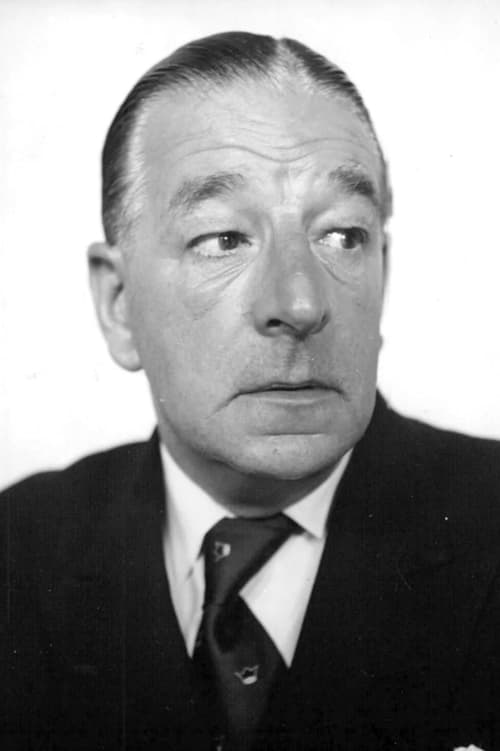
Ronald Shiner
Ronald Alfred Shiner
atau dikenal sebagai
Riwayat Hidup
Ronald Alfred Shiner (8 June 1903 in London – 29 June 1966 in London) was a British stand-up comedian and comedic actor whose career encompassed film, West End theatre and music hall.
A former Royal Northwest Mounted Police Officer, farmer, greengrocer, milkman, bookie's clerk, soldier and film extra, Shiner shot to fame appearing in 1,700 performances of the stage hit Worm's Eye View from 1945 to 1947 (he would later top his own record by appearing in the play Seagulls Over Sorrento for 2,000 performances between 1950 and 1954).
At the height of his career Shiner insured his nose for £10,000 because he said "it's me beak which made 'em larf.
" In retirement he owned a pub at Blackboys in Sussex but was plagued by ill health in his final years and retired to Eastbourne.
He died there in June 1966 leaving an estate of £30,955.
Info Pribadi
Peran Yang Di Mainkan Ronald Shiner
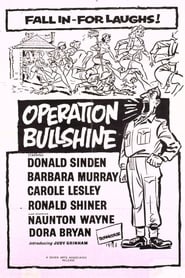 During World War II a Royal...
During World War II a Royal...Operation Bullshine 1959
During World War II, a Royal Artillery officer is assigned to an anti-aircraft battery that is filled with female soldiers of the Auxiliary Territorial Service. His wife who has enlisted is mistakenly posted to the battery in violation of regulations of husbands and wives serving together in the same formation. She becomes jealous of what she perceives as him paying too much attention to the other Auxiliary Territorial Service women.
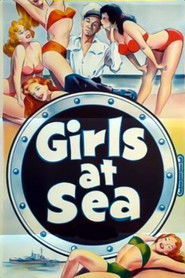 When HMS Scotia pays a visit...
When HMS Scotia pays a visit...Girls at Sea 1958
When HMS Scotia pays a visit to the French Riviera, the officers throw a lavish party to celebrate the engagement of Captain Robert Randall to Jill Eaton, a charming American girl; among the guests are Mary Carlton, Jill's American friend, and Antoinette, a vivacious redhead. However, when the last shore-boat is deemed unseaworthy, the girls are obliged to spend the night on ship. A series of hilarious complications ensue, as the officers attempt to keep the girls away from the beady eyes of Admiral Hewitt – who chooses this very night to board the Scotia.
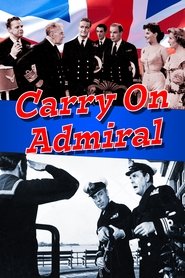 Two friends get drunk and decide...
Two friends get drunk and decide...Carry on Admiral 1957
Two friends get drunk and decide to switch identities. One is a Parliamentary Secretary, and the other is the captain of a ship. The former's lack of sea knowledge causes several catastrophes, including torpedoing the First Lord of The Admiralty. The grass is always greener.... In this British comedy, two drunken comrades find out the truth of that saying when they decide to trade places for a while. One of the boozers is a public relations man who knows nothing about sailing, while the other is a captain for the Royal Navy. Comic mayhem ensues as the hapless "captain" tries to run his ship and follow orders.
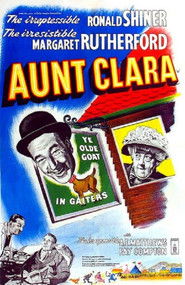 A wealthy old man dies and...
A wealthy old man dies and...Aunt Clara 1954
A wealthy old man dies and leaves his holdings--including a brothel and a gambling den, racing greyhounds and a sleazy bar--to his eccentric Aunt Clara. Clara vows to "clean up" her new establishments, but complications ensue when she visits the crooked gambling den--just as it's being raided by the police.
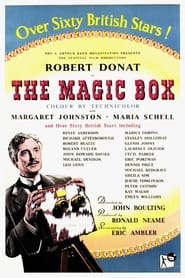 Now old ill poor and largely...
Now old ill poor and largely...The Magic Box 1952
Now old, ill, poor, and largely forgotten, William Freise-Greene was once very different. As young and handsome William Green he changed his name to include his first wife's so that it sounded more impressive for the photographic portrait work he was so good at. But he was also an inventor and his search for a way to project moving pictures became an obsession that ultimately changed the life of all those he loved.
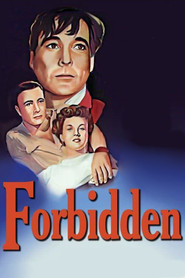 Set on Blackpools Golden Mile Jim...
Set on Blackpools Golden Mile Jim...Forbidden 1949
Set on Blackpool’s Golden Mile, Jim (Douglass Montgomery), a once promising scientist, sets up in business as a patent medicine man selling hair tonic at the fair with his ex-army colleague Dan (Ronald Shiner). Following a fight with local hoods over pitch spaces, Jim falls for Jane (Hazel Court), the girl on a nearby candy floss stall. The two begin dating but Jim fails to mention he is already married.
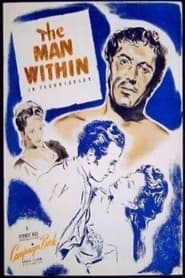 A man goes on the run...
A man goes on the run...The Man Within 1947
A man goes on the run from hardened smugglers.
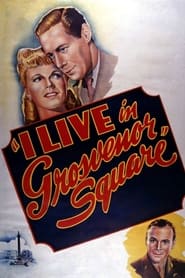 The WW II romance set in...
The WW II romance set in...I Live in Grosvenor Square 1945
The WW II romance set in Grosvenor square aka Eisenhower's home where the GIs stayed in London. Neagle loves Harrison. There arrives patriot GI Dean Jagger to rouse things up in the square. Snotty British Neagle and Jagger clash and fall for each other. What will Harrison have to say or do about these? What will the consequences be? Will the three finally become two and which two in this extremely patriotic love and war story.
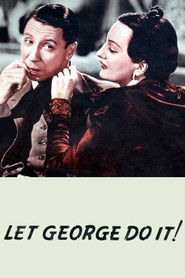 Shortly after the start of World...
Shortly after the start of World...Let George Do It! 1940
Shortly after the start of World War II, a ukelele player (George) takes the wrong boat and finds himself in (still uninvaded) Norway. He is mistaken for a fellow British intelligence agent by a woman (Mary), and becomes involved in trying to defeat Nazi agents.
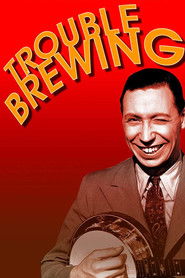 Ealing comedy starring music hall star...
Ealing comedy starring music hall star...Trouble Brewing 1939
Ealing comedy starring music hall star George Formby. An eager newspaper reporter (Formby) goes undercover to expose a gang of counterfeiters. Posing as a wrestler and waiter in his investigative efforts, George proves a greater menace to public order than the criminals he is chasing.
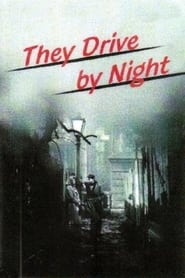 Shorty Matthews having recently been released...
Shorty Matthews having recently been released...They Drive by Night 1938
“Shorty” Matthews having recently been released from prison visits his girlfriend in London only to discover her murdered. Fearing he will be wrongly accused of being the culprit he disappears amongst the long-distance lorry driving community. Meanwhile, the real killer, unassuming ex-schoolteacher Walter Hoover, continues to prey on London women. As Shorty had feared he has become the main suspect. He returns to London with old flame Molly to prove his innocence.
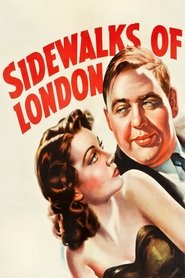 On the sidewalks of the London...
On the sidewalks of the London...St. Martin's Lane 1938
On the sidewalks of the London theater district the buskers (street performers) earn enough coins for a cheap room. Charles, who recites dramatic monologues, sees that a young pickpocket, Libby, also has a talent for dancing and adds her to his act. Harley, the theater patron who never knew Libby took his gold cigarette case, is impressed by Libby's dancing and invites her to bring Charles and the other buskers in his group to an after-the-play party. Libby comes alone. A theatrical career is launched.
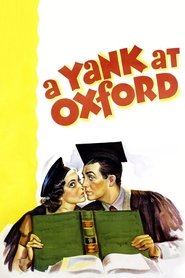 A brash young American aristocrat attending...
A brash young American aristocrat attending...A Yank at Oxford 1938
A brash young American aristocrat attending Oxford University gets a chance to prove himself and win the heart of his antagonist's sister.
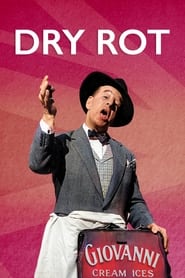 Comedy about a trio of not...
Comedy about a trio of not...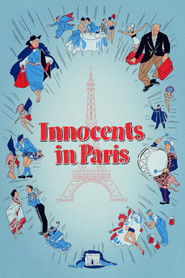 Romantic comedy about a group of...
Romantic comedy about a group of... The aging Caesar finds himself intrigued...
The aging Caesar finds himself intrigued...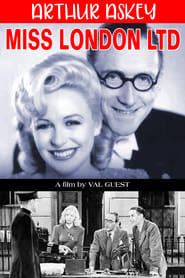 Askey stars as a man trying...
Askey stars as a man trying...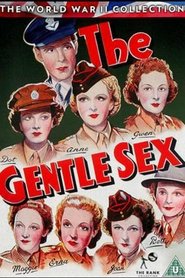 During the War seven women from...
During the War seven women from...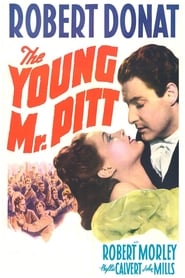 This biopic tells the story of...
This biopic tells the story of...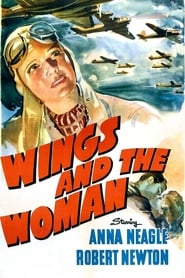 The story of flyer Amy Johnson...
The story of flyer Amy Johnson...